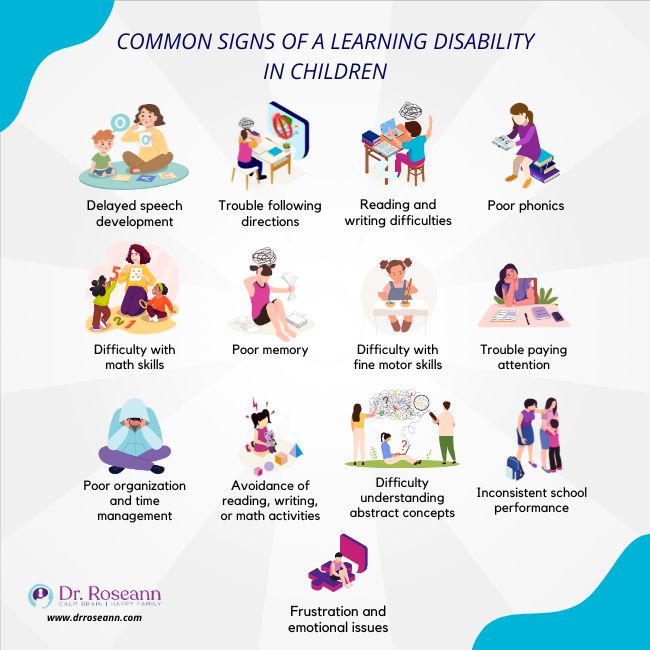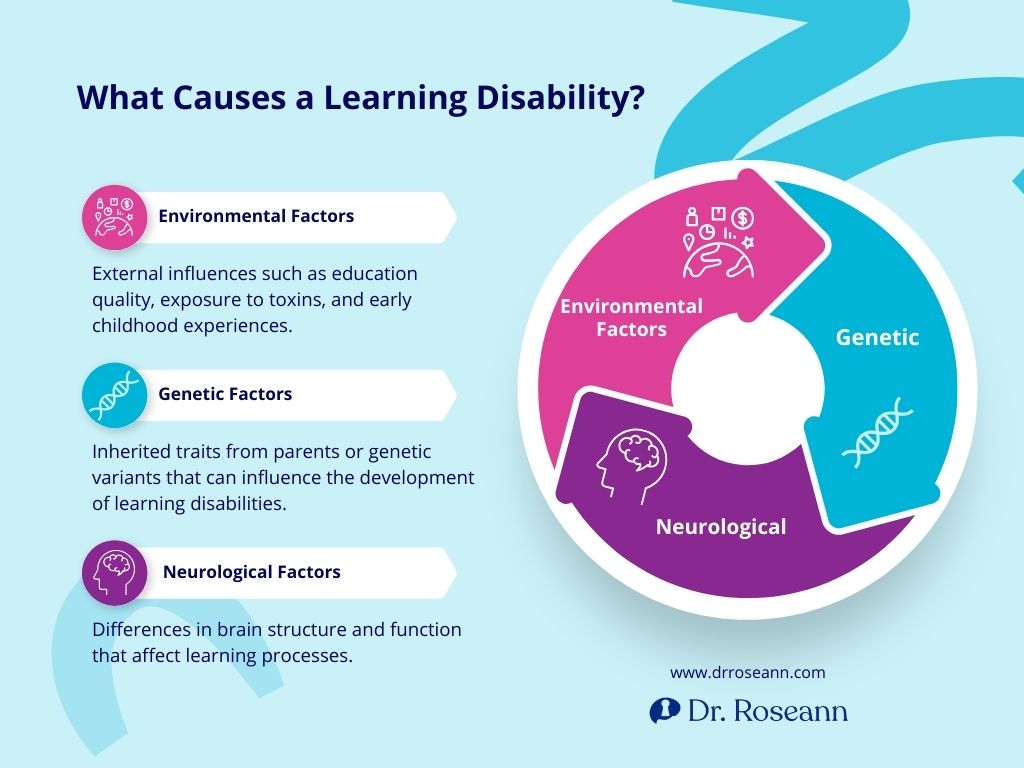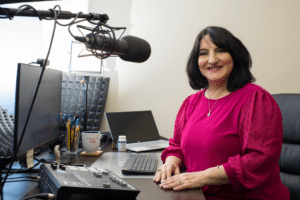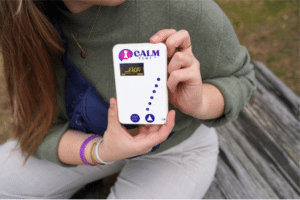Learning disabilities often affect children, impact their academic journey, and shape their unique learning profiles. Understanding the causes, symptoms, and potential hereditary factors of learning disabilities is crucial for providing effective support and interventions.
Let’s dive deeper into the intricate world of learning disabilities in children and address questions such as whether learning problems are genetic. We’ll also explore the various facets of these challenges. I’ve helped many kids with learning disabilities in schools for many years, and I’m excited to share with you my experiences.
Learning Disability and Specific Learning Disability: Understanding the Terminology
Navigating the landscape of learning challenges requires a nuanced understanding of the terminology, differentiating between learning disability and specific learning disability. These terms are often used interchangeably, but they carry distinct meanings that contribute to a comprehensive understanding of an individual's learning profile.
What is a Learning Disability?
The term learning disability serves as an umbrella encompassing a wide range of difficulties individuals may encounter in acquiring knowledge and skills. It acknowledges that challenges may extend beyond specific academic areas, encompassing various aspects of cognitive processing, information retention, and skill acquisition.
Learning disabilities can manifest in different ways, impacting an individual's ability to learn, read, write, calculate, or organize information effectively.
What is a Specific Learning Disability?
On the other hand, specific learning disability narrows the focus to challenges encountered in particular academic domains. This term recognizes that an individual may excel in certain areas while facing significant difficulties in others, such as reading, writing, or math.
Specific learning disabilities are highly individualized and can manifest as difficulties in phonological processing, decoding words, spelling, or grasping mathematical concepts.
Comparing Learning Disorder vs Specific Learning Disorder Definition
Distinguishing between these two terms is essential for precision in identifying and addressing the nature of challenges. This distinction enables educators, parents, and professionals to implement targeted interventions, tailoring support to the specific areas of difficulty encountered by the individual.
This precision fosters a more effective and personalized approach to education and intervention. While these terms have distinct meanings, it's crucial to acknowledge the interplay between them, as learning challenges often exist on a spectrum.
Recognizing this interplay provides a holistic understanding of an individual's learning profile, allowing for comprehensive support that addresses a specific academic disability and broader learning needs.
Using the right terminology empowers stakeholders to advocate for tailored support and accommodations. It fosters a more inclusive and supportive educational environment for children with learning disabilities as they navigate their academic journeys.
Students with Learning Disabilities: Recognizing Common Problems

Students learning with a disability typically have problems in specific academic areas. While they may struggle with reading, writing, mathematics, and language skills, their difficulties can extend to more comprehensive issues such as information processing, memory, attention, and executive functions.
These broader challenges significantly impact not only their academic performance but also their overall learning experiences. Recognizing these common learning disorders is crucial in providing targeted assistance. It’s worth noting that the most commonly diagnosed learning disorder is dyslexia.
Understanding the multifaceted nature of learning disabilities allows parents and teachers to implement inclusive strategies that address specific subject-related difficulties and the broader cognitive and executive function challenges faced by learning-disabled students.
Such a holistic approach contributes to a supportive educational environment that nurtures the diverse needs of a student with learning disability issues. It propels their growth and success in academia and beyond.
What Causes Learning Disabilities?
Learning disabilities, whether general learning disability or specific learning disability, are complex conditions influenced by a combination of genetic, neurological, environmental, and developmental factors.
When it comes to learning disability causes, genetic predisposition plays a role. Individuals having a family history of learning disabilities are at a higher risk. Dyslexia runs very strongly in families. Neurological differences, prenatal and perinatal factors, and environmental influences during critical developmental periods contribute to the multifaceted nature of learning challenges.

Are learning difficulties genetic?
Yes, there is evidence to suggest a genetic component in learning disabilities. Individuals with a family history of these challenges may inherit a predisposition, and it contributes to their unique learning profiles.
However, it's essential to note that genetic factors interact with various environmental elements, and not all individuals with a genetic predisposition will necessarily develop learning disabilities later on in life.
The question of whether learning disabilities are hereditary goes into the connection of genetics and the complex nature of these challenges. While not every instance of learning disabilities can be attributed to heredity, there is a substantial acknowledgment within the scientific community that genetic factors can play a role in influencing an individual's susceptibility to such difficulties (Pennington & Smith, 1983).
The Genetic Landscape of Learning Disabilities
Genetic factors contribute to the intricate landscape of learning disabilities. Individuals with a family history of these challenges may inherit a genetic predisposition that makes them more susceptible to encountering similar difficulties in their academic journey. This hereditary component, however, is just one facet of the multifaceted origins of learning disabilities.
But it's also important to note that not all cases of learning disabilities have a hereditary basis. The development of these challenges is often influenced by a combination of genetic, neurological, environmental, and developmental factors. The interaction of these elements creates a diverse range of learning profiles, each shaped by a unique combination of genetic and environmental influences.
Family History and Likelihood of Developing Cognitive or Learning Disabilities
A family history of severe learning disorders does, nevertheless, raise the likelihood of an individual experiencing similar challenges. This observation suggests that there may be shared genetic factors within families that contribute to the manifestation of general learning difficulties and disabilities.
Understanding this familial connection provides valuable insights for both individuals and their families, offering a context for addressing and supporting the unique learning needs that may arise.
The most common known hereditary cause of intellectual disabilities is Down Syndrome, a genetic condition resulting from an extra copy of chromosome 21. This additional genetic material affects cognitive development and leads to intellectual and developmental challenges.
While genetics is a significant factor, the impact of the environment on the development and manifestation of childhood learning disabilities cannot be overstated. Environmental factors during critical periods of development, exposure to educational resources, and the overall support system also play pivotal roles in shaping an individual's learning experiences.
A deeper look into the symptoms and causes of learning disabilities is pivotal for fostering a supportive environment and implementing effective interventions. Early recognition and collaboration with educational and healthcare professionals can empower people with learning disabilities to thrive academically and beyond.
What causes learning difficulties in the classroom?
The different types of learning difficulties have diverse causes, including genetic predisposition, neurological differences, prenatal and perinatal factors, environmental influences, and exposure to trauma. The causes of learning disability include a family history of learning disabilities, ADHD, and other neurodevelopmental disorders associated with learning impairments.
How do you know if you have a learning disorder?
Suspecting a learning disorder involves recognizing persistent academic struggles, inconsistencies in performance, and difficulties with attention, memory, and time management. Emotional impact and feedback from teachers or peers, along with early signs in childhood, can provide additional insights.
How do learning disabilities affect students?
Learning disabilities can significantly impact students by causing persistent difficulties in acquiring and applying essential academic skills. This can lead to challenges in reading, writing, mathematics, and language, affecting overall academic performance. Emotional and psychological well-being may also be affected. These issues should be addressed by the child’s learning disabilities therapy.
How many students have learning disabilities?
The prevalence of learning disabilities can vary, but according to data from the National Center for Learning Disabilities (NCLD) and the U.S. Department of Education (2007), it's estimated that about 10% of the U.S. population has a learning disability. Based on these figures, the number of children with learning and attention issues is approximately 1 in 10 individuals in the United States.
How to diagnose learning disability in children?
Diagnosing learning disorders in children involves a comprehensive assessment conducted by qualified professionals. The diagnosis of a LD disability includes a thorough evaluation of the child's academic skills, cognitive abilities, and behavioral observations. Standardized tests, interviews, and observations are often used to identify specific learning patterns and challenges.
Is a learning disability a mental disability?
No, a learning disability is not classified as a mental disability. Learning disabilities that affect learning and academic functioning, involving challenges in acquiring and applying specific skills, while mental disabilities typically refer to conditions affecting mental health or cognitive processes more broadly.
Is learning disability a mental disorder?
Yes, dyslexia is among the specific types of cognitive and learning disabilities. It is characterized by difficulties in accurate and/or fluent word recognition and by poor spelling and decoding abilities, often related to challenges in phonological processing.
Is dyslexia a learning disorder?
No, a learning disability is not considered a mental disorder. Learning disabilities are specific neurological conditions that impact an individual's ability to acquire and apply certain academic skills, while mental disorders generally refer to conditions affecting mental health and emotional well-being.
Which childhood problem has legal and emotional aspects?
One childhood problem that has legal and emotional aspects is the identification and accommodation of learning disabilities. In the educational context, children with learning disabilities may require special accommodations, and ensuring these accommodations is not only an emotional consideration but also a legal right protected under education laws, such as the Individuals with Disabilities Education Act (IDEA) in the United States.
Is Down's syndrome a learning disability?
Yes, Down Syndrome is associated with intellectual disabilities, making it a condition that often includes learning challenges. Individuals with Down Syndrome learning disability may exhibit varying degrees of learning or cognitive disability, impacting their mental abilities and development.
Is a learning disability an intellectual disability?
No, a learning disability is distinct from an intellectual disability. A learning disability primarily affects specific academic skills, such as reading or math, while intellectual disabilities involve limitations in general intellectual functioning, including reasoning, problem-solving, and adaptive functioning.
How many learning disabilities are there?
Learning disabilities manifest in various forms, and it's challenging to provide a specific count as they can overlap and coexist. The different types of learning disabilities include dyslexia, dyscalculia, dysgraphia, ADHD, and auditory processing disorder, but the range of other learning disabilities is diverse, and individuals may experience unique combinations of challenges.
Who can diagnose learning disabilities?
To get learning disability help, qualified professionals such as educational psychologists, neuropsychologists, and specialized educators can provide a disability diagnosis. The assessment process typically involves a comprehensive evaluation of academic skills, cognitive abilities, and behavioral observations to identify specific learning patterns and challenges.
What defines a learning disability?
Language and learning disabilities are neurological conditions that significantly impairs an individual's ability to acquire, process, or use information effectively, particularly in areas related to academic skills.
What is the most commonly diagnosed learning disability?
Disorders like dyslexia is often considered the most common learning disability. It is characterized by difficulties in accurate and/or fluent word recognition and by poor spelling and decoding abilities, typically related to difficulties in phonological processing.
Do learning disabilities go away?
Learning disabilities are typically lifelong conditions. However, with appropriate support, intervention, and accommodations, individuals can develop strategies to manage their learning deficit and achieve success in various aspects of life.
What factors can impact learning in middle childhood?
Several factors can impact learning in middle childhood, including the quality of educational resources, teacher effectiveness, family support, and the child's social environment. Additionally, individual characteristics such as cognitive development, attention, and the presence of the common learning disabilities can significantly influence the learning experience during this developmental stage.
How to help a child with learning disability problems?
Supporting a person with learning disability issues involves creating an individualized plan that may include specialized educational interventions, accommodations, and targeted therapies. Collaborating with teachers and educational professionals, and seeking guidance from specialists can ensure tailored support that addresses the child's disability symptoms and unique learning needs.
Is a learning disability a developmental disability?
Yes, a learning disability is considered a type of developmental disability. This developmental academic disorder involves challenges in acquiring, processing, or using information, impacting specific academic skills, and it is often diagnosed during the developmental stages of childhood.
Who diagnoses a learning disability brain?
A learning disability or disorder is typically diagnosed by qualified professionals such as educational psychologists, neuropsychologists, or specialized educators. A learning disability diagnosis involves a comprehensive assessment that evaluates academic skills, cognitive abilities, and behavioral observations to identify specific learning patterns and challenges.
What are the different types of learning disorders in adults?
Learning disabled adults adults may have dyslexia, dyscalculia, dysgraphia, ADHD, auditory processing disorder, and non-verbal learning disability. These types of learning disabilities in adults can present challenges in academic, professional, and personal settings, impacting reading, math, writing, attention, and social interactions.
Citations
Learning Disabilities and Young Children: Identification and Intervention. A Report from the National Joint Committee on Learning Disabilitie, October, 2006 (pp. 63-72). (2007). Learning Disability Quarterly, 30(1), 63. https://doi.org/10.2307/30035516
Pennington, B. F., & Smith, S. D. (1983). Genetic Influences on Learning Disabilities and Speech and Language Disorders. Child Development, 54(2), 369. https://doi.org/10.2307/1129698
Dr. Roseann is a mental health expert in Learning Disabilities who frequently is in the media:
- CBS (Video) Student Learning Resources Quarantine
- CT FOX61 (Video) Homeschooling Tips During Quarantine
- Jamie Gold Thought Leader Conversation: School Psychologist Roseann Capanna-Hodge On Wellness Design Ideas For Covid Homeschooling
Always remember… “Calm Brain, Happy Family™”
Disclaimer: This article is not intended to give health advice and it is recommended to consult with a physician before beginning any new wellness regime. *The effectiveness of diagnosis and treatment vary by patient and condition. Dr. Roseann Capanna-Hodge, LLC does not guarantee certain results.
Are you looking for SOLUTIONS for your struggling child or teen?
Dr. Roseann and her team are all about science-backed solutions, so you are in the right place!
Grab your complimentary copy of
147 Therapist-Endorsed Self-Regulation Strategies for Children: A Practical Guide for Parents
Dr. Roseann is a Children’s Mental Health Expert and Licensed Therapist who has been featured in/on hundreds of media outlets including The Mel Robbins Show, CBS, NBC, PIX11 NYC, Today, FORBES, CNN, The New York Times, The Washington Post, Business Insider, Women’s Day, Healthline, CNET, Parade Magazine and PARENTS. FORBES called her, “A thought leader in children’s mental health.”

She coined the terms, “Re-entry panic syndrome” and “eco-anxiety” and is a frequent contributor to media on mental health.
Dr. Roseann Capanna-Hodge has three decades of experience in working with children, teens and their families with attention-deficit hyperactivity disorder (ADHD), autism, concussion, dyslexia and learning disability, anxiety, Obsessive Compulsive Disorder (OCD), depression and mood disorder, Lyme Disease, and PANS/PANDAS using science-backed natural mental health solutions such as supplements, magnesium, nutrition, QEEG Brain maps, neurofeedback, PEMF, psychotherapy and other non-medication approaches.
She is the author of three bestselling books, It’s Gonna Be OK!: Proven Ways to Improve Your Child's Mental Health, The Teletherapy Toolkit, and Brain Under Attack. Dr. Roseann is known for offering a message of hope through science-endorsed methods that promote a calm brain.
Her trademarked BrainBehaviorResetⓇ Program and It’s Gonna be OK!Ⓡ Podcast has been a cornerstone for thousands of parents facing mental health, behavioral or neurodevelopmental challenges.
She is the founder and director of The Global Institute of Children’s Mental Health, Neurotastic™Brain Formulas and Dr. Roseann Capanna-Hodge, LLC. Dr. Roseann is a Board Certified Neurofeedback (BCN) Practitioner, a Board Member of the Northeast Region Biofeedback Society (NRBS), Certified Integrative Mental Health Professional (CIMHP) and an Amen Clinic Certified Brain Health Coach. She is also a member of The International Lyme Disease and Associated Disease Society (ILADS), The American Psychological Association (APA), Anxiety and Depression Association of America (ADAA) National Association of School Psychologists (NASP), International OCD Foundation (IOCDF).
© Roseann-Capanna-Hodge, LLC 2024










